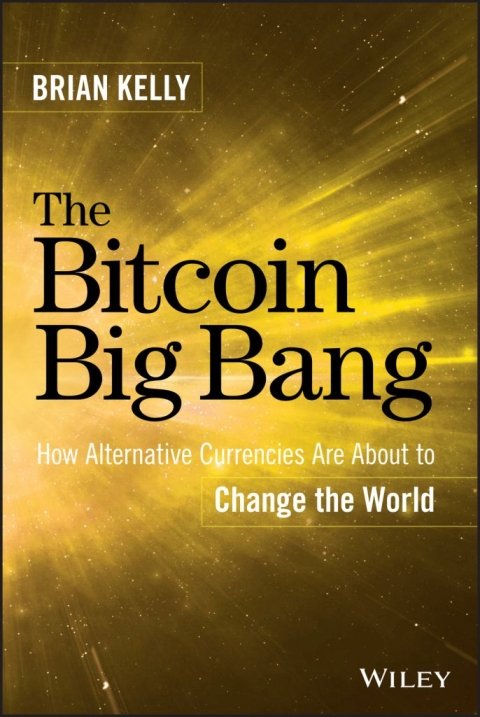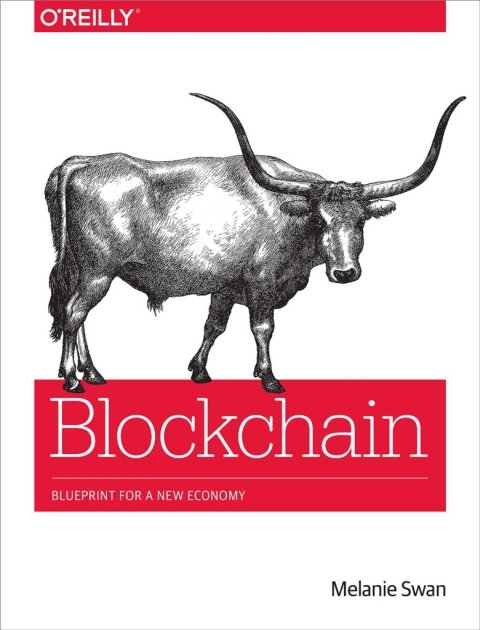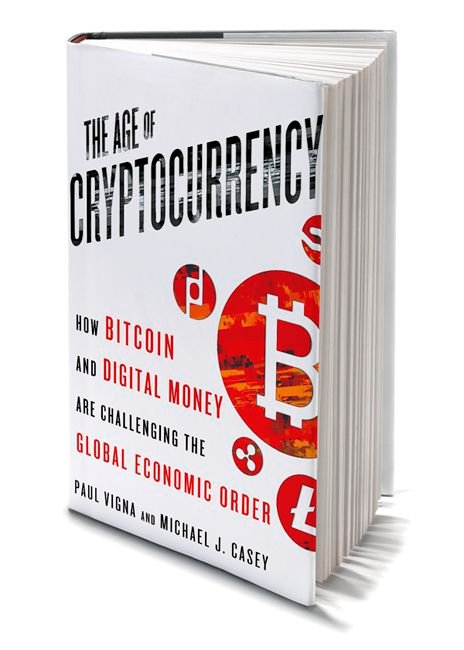Best Books of Bitcoin and thoughts of their authors
In 2016, hundreds of books have been published on this subject. Why do the authors of business subjects so intrigued cryptocurrency? Fortune spoke on this subject with the three authors of the most serious books on the subject. Here are five questions of each conversation.

Book: Bitcoin Big Bang. Author: Brian Kelly - investor and frequent visitor to the channel CNBC
Fortune: The first time you were skeptical about Bitcoin, but then you changed your mind. Why now you have started to convince everyone that it is serious?
Brian Kelly: I understand that this is a revolution that is going on in my area. I'm a currency trader, and as an economist I should know everything you can about this technology, as it has a really subversive. Bitcoins have a lot of interesting subtleties that are worth mentioning. I am well versed in digital currencies and the technology that lies at their core. But if I immediately began to "load" the reader complex terminology, one would not understand. So I tried to write her townsfolk clear language, avoiding complicated technical issues as possible.
Fortune: Bitcoin consider reasonable investment?
Brian Kelly: High volatility - this is his biggest problem at the moment. And in general to evaluate the currency? She has no intrinsic value, but hope that the demand and the buyers will be in the future on it. Then work the principle of "greater fool" (theory according to which speculation can take place even in the case of matching the market price of paper of its real value, because the market will always be idiots who will continue to inflate the price - approx CoinSpot.), As well as y of gold. But not in a bad way. We have a real opportunity to raise the financial system to a new level, to restore it, so to speak. Will the principle of "greater fool" the best in this case? Quite why not. As a minimum, it is right to exist.
Fortune: Do you see interest from Wall Street?
Brian Kelly: First, everything just ask what it is all about. Then basically two options is the reaction: "Cool, teach me to use it," and, of course, the classic question for Wall Street "like to earn some money?". However, there are those who like and interested, but they say: "it's not the money, I do not understand how it works, so I'll stay away from him."
Fortune: Jamie Dimon called it "a terrible store of value."
Brian Kelly: I would not say that to date, he is wrong. At least because of the issue of volatility. I believe that the price will rise. However, there are other digital currencies that add something new, as a variant of Ripple. In fact, I advocate a greater number of digital currencies than one. And it seems to me that these currencies would represent a new asset class for Wall Street in 10-20 years. They become part of the investment portfolios.
Fortune: A lot of hype around the investment of the New York Stock Exchange in Coinbase. Deservedly Is that all?
Brian Kelly: I think, NYSE part in Coinbase - this is a turning point for Bitcoins. I look at these exchanges as brokers for the digital currency, and I believe that quite a few companies can co-exist if we consider how each broker. Will the brothers Winklevoss Twins Gemini Exchange to take in the future, the role of Charles Schwab digital currencies in the world? I do not know, but I argue like this.

Book: Blockchain: Blueprint for a New Economy. Author: Melanie Swan - a philosophy professor and founder of the Institute for Research "blokcheyn" technology (blockchain)
Fortune: Your book is much more scientific character than many other highly specialized and much more on blokcheyne, Bitcoin core technology. This is not just some "Bitcoin for Dummies."
Melanie Swan: Certainly, this is not "Bitcoin for Dummies." My goal, really, was to concentrate on blokcheyne as a new form of information technology and the opportunities it can open for the financial markets.
Fortune: What blokcheyn you so impressed?
Melanie Swan: Bitcoin - is just one example of the use of technology blokcheyn and cryptocurrency, in turn, is only one example of decentralized technologies. Today, when the Internet is incredibly diverse and extensive, I think we will see many other examples of the application of the principles of decentralized technologies and "block chain". It seems to me that the decentralized network will be a huge wave of new technologies. Blokcheyn enables devices around us to "communicate" with each other much more effectively.
Fortune: Subjects quite single-minded focus, who read the book?
Melanie Swan: Basically these are people from the industry and the Futurists.
Fortune: In other words, readers are already interested in Bitcoin. And how would you describe blokcheyn for a beginner?
Melanie Swan "Chain blocks" improve reliability, transparency and efficiency of reporting systems. On the Internet, we have never had a special monetary layer. With technology "block chain", we can create it, and add smart contracts that will automate the vast organizational processes. Absolutely any asset from the house, car, or forms of intellectual property may be registered, can be monitored and passed on by blokcheyna. And in the future of the property transfer process, prenuptial agreements and various public records can be registered using the "chain blocks", and it will be much more convenient and efficient for the state.
Fortune: You can be called a supporter of Bitcoin?
Melanie Swan: I'm for technology that improves the lives of people in all possible directions, and it seems to me, have blokcheyna have every chance to do so. We are at the early stage of this technology recognition, but already beginning to see the different areas of application. And all this can happen quite quickly, because the technology has "run-in", and it simply has to succeed.
WHITE BOOK

Book: The Age of Cryptocurrency. Author: Paul Vigna, Michael Casey - Wall Street Journal reporter
Fortune: You two actively cover Bitcoin ecosystem in the WSJ. As far as the public interest coincides with the position of the publication?
Paul Vigna: We need people who are interested in this right now. However, this must be the right people in the right places. And I mean not only those who are willing to use Bitcoin in everyday life, it is required as interested representatives of influential companies. And such obviously exist. To Bitcoin for payment began to take the company DISH Network, there had to be someone who is interested in it and the one who began to promote the idea of the company. Even Microsoft has started the entire process from several interested parties on this.
Fortune: Developers often say that it just does not matter.
Paul Vigna: Is Bitcoin "mom and dad" needed? I think yes. Many people think that Apple Pay is not a threat to the Bitcoins, and I think that is quite. You are trying to transplant people on Bitcoin as a mobile payment system, but Apple Pay is already implementing, and very effective. If a person is already "hooked" on Apple's technology, it would not need a Bitcoin. So, I think what is important is how it will be used by all ordinary people. But, of course, this is not a decisive factor.
Fortune: How relevant is the collapse of the course?
Paul Vigna: This is important. But if we talk about the course, "chip" Bitcoins, which, in my opinion, little attention is the fact that Bitcoin - is emerging unregulated market. In the world of Bitcoin does not exist, and many of the principles of things, which is on the New York Stock Exchange. When people look at the value of the price, they think that it is objective and fair, but this is not necessarily so. It seems to me that the price may go even lower, but at the same time gain more stability. And that would be fine.
Fortune: They say Bitcoin need some kind of "killer-feature" that they are interested in everything? Do you agree with that?
Paul Vigna: For Bitcoin itself is not a priority. However, if you have a business and you're waiting for profits, then everything changes. In the world of start-ups no fixate only on the money. This strong contrast to the rest of corporate America. Circle, Coinbase, Blockchain, Bitstamp - all these companies supported by venture capital investors, and they all have their own internal culture, the guys are working according to their own rules. Can investors to climb in their affairs? Certainly. But I do not think that they are under pressure to produce quick profits. It seems to me you need ten years.
Fortune: You and Michael illuminate Bitcoin for the newspaper, and at the same time your book is full of optimism about the technology. How difficult is it to remain objective?
Paul Vigna: We did not have any problems in the wording when we started working on the book. I think we all understood in the WSJ, it's important, and it is necessary to tell about it. We support Bitcoin itself, not the person or the company? It is possible to realize the importance of the subject and to consider it seriously, without sacrificing objectivity. We go this way. And the more it's a great story about the technology that comes out of nowhere, takes the world by storm and when it has a secret of its appearance ... Whether you are a journalist, do you would be able to refuse from this?
P.S.Write in the comments of my personal opinion about Bitcoin